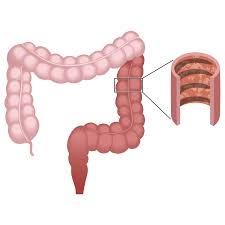Ulcerative colitis (UC) is a chronic inflammatory bowel disease (IBD) that causes inflammation and ulcers in the lining of the large intestine and rectum. Managing this condition involves a variety of approaches aimed at reducing inflammation, managing symptoms, and achieving long-term remission. Here is more information on ulcerative colitis treatment options, including medications, dietary and lifestyle adjustments, and surgical interventions:
Exploring Medication Options
Medications are a primary method for ulcerative colitis treatment. The goal of drug therapy is to induce and maintain remission. A healthcare provider will recommend a specific medication based on the severity and extent of the inflammation. Here are a few frequently used medications:
- Aminosalicylates (5-ASAs): These drugs contain 5-aminosalicylic acid, which helps control inflammation in the colon. They are often used for mild to moderate cases of ulcerative colitis and are available in oral or rectal forms, such as suppositories or enemas.
- Corticosteroids: For moderate to severe flare-ups, a doctor may prescribe corticosteroids like prednisone. These medications are potent and fast-acting anti-inflammatory agents.
- Immunomodulators: These drugs modify the immune system’s activity to reduce inflammation. They may be prescribed if aminosalicylates or corticosteroids are not effective or for long-term management.
- Biologics: Biologic therapies are advanced medications that target specific proteins involved in the inflammatory process. Administered via injection or infusion, these drugs are usually reserved for individuals who have not responded to other treatments.
Adjusting Lifestyle Factors
Alongside medical treatment, specific dietary and lifestyle adjustments can help manage symptoms and improve quality of life. An individual’s response to certain foods can vary, so personalization is key. A food diary can help identify specific items that trigger symptoms. Some people find that limiting high-fiber foods, such as raw fruits and vegetables, during a flare-up can reduce cramping and diarrhea. Others might notice that avoiding dairy, spicy foods, or fatty foods helps alleviate symptoms. Staying hydrated by drinking plenty of fluids, especially water, is beneficial for everyone, particularly during bouts of diarrhea.
Lifestyle modifications can also support overall well-being. Managing stress through techniques like mindfulness, yoga, or gentle exercise may help reduce symptom frequency for some individuals. Getting adequate sleep and engaging in regular, low-impact physical activity can also contribute positively to managing the condition.
Utilizing Surgical Interventions
When medications and lifestyle changes do not adequately control the symptoms of ulcerative colitis or when complications arise, surgery may become a necessary option. The most common surgical procedure for UC is a proctocolectomy, which involves the removal of the colon and rectum. Following a proctocolectomy, a surgeon can create an internal pouch from the small intestine and attach it to the anus. This procedure, known as an ileal pouch-anal anastomosis (IPAA) or J-pouch, allows for the normal passage of stool. In other cases, a surgeon may perform an ileostomy, where an opening is created in the abdomen to allow waste to exit the body into an external bag.
Get Ulcerative Colitis Treatment
Managing ulcerative colitis involves a multi-faceted approach tailored to individual needs. Treatment often begins with medications, such as aminosalicylates, corticosteroids, immunomodulators, or biologics, to control inflammation and maintain remission. Complementary dietary and lifestyle adjustments, such as identifying trigger foods and managing stress, can also help alleviate symptoms. For those with severe or unresponsive disease, surgical removal of the colon offers a definitive treatment. If you experience these symptoms, consult with a gastroenterologist to learn more.
- Choosing the Right Plastic Surgeon for Your Cosmetic Procedure
- Understanding Different Types of Laser Treatments for Skin Rejuvenation
- Why a Family Dentist is Key for Maintaining Oral Health
- The Benefits of Regular Visits to a Wellness Spa
- Exploring the Emotional and Psychological Triggers of Eating Disorders


Leave a Reply